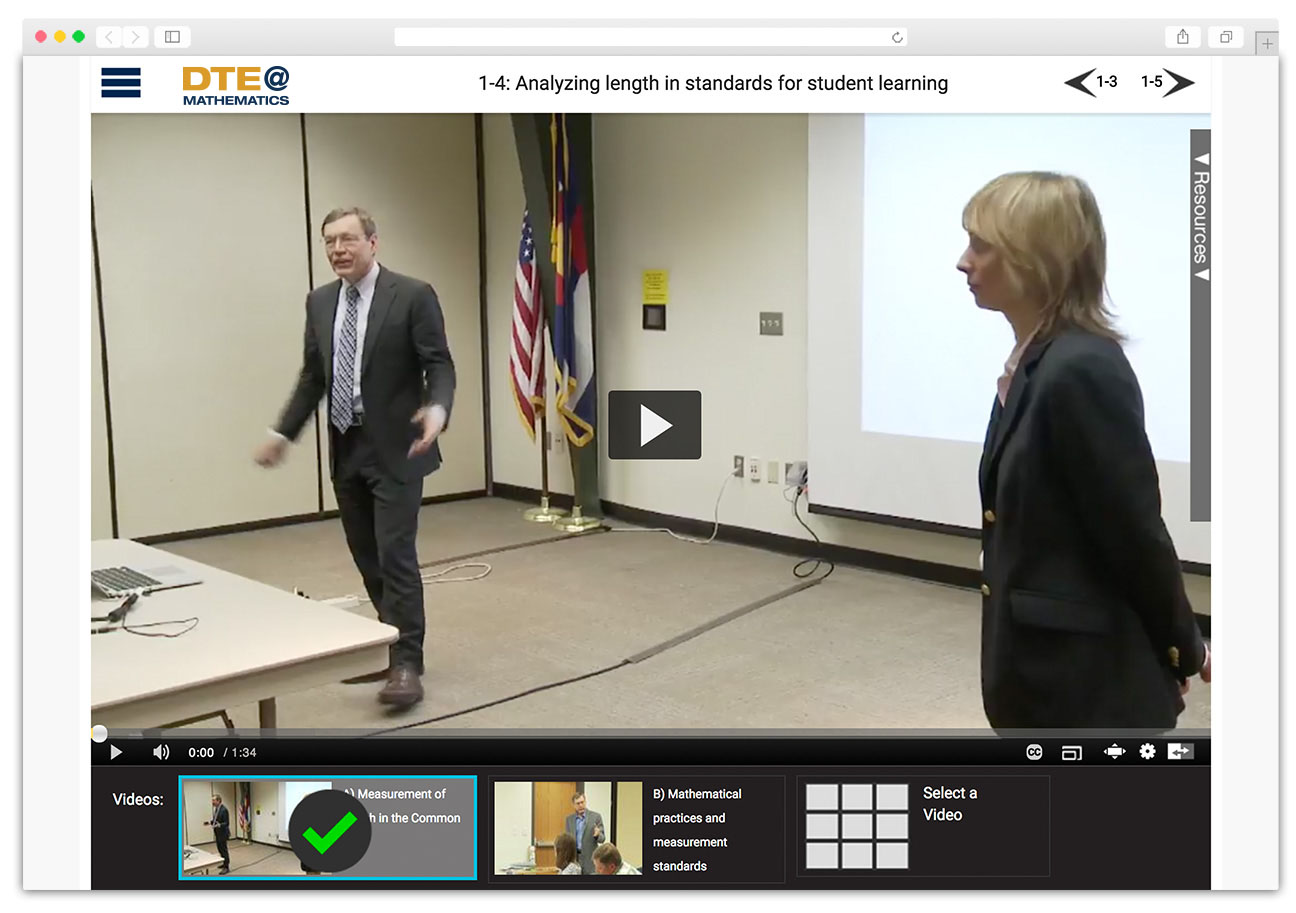Geometric-measurement - Session 1: Length Learning Trajectory – Mathematical goals
Part 4: Analyzing length in standards for student learning
Overview
This part involves an exploration of the way length measurement is represented in the Common Core State Standards, including consideration of how the standards for mathematical practice relate to length measurement.
Key Points
- Students’ work on measurement tasks can be a context for work on several mathematical practices, including “reason abstractly and quantitatively” (MP #2), “model with mathematics” (MP #4), “use appropriate tools strategically” (MP #5), “attend to precision” (MP #6), and “look for and make use of structure (MP #7).
- Students’ work on length measurement in the early grades should enable them to develop understanding of foundational concepts of measurement that they can build upon when working on other types of measurement in later grades.
